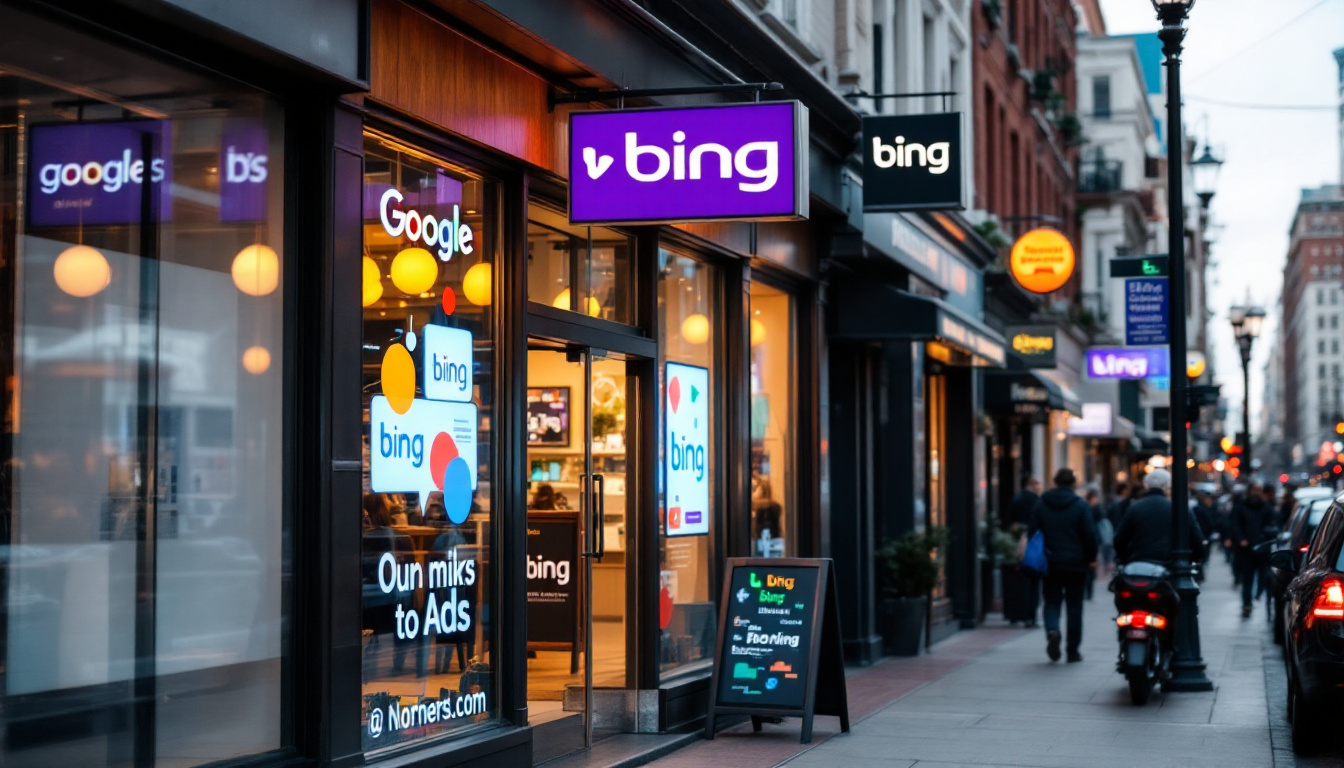How Long Does It Take to See Results from PPC in Washington, DC?

Pay-Per-Click (PPC) advertising is a popular digital marketing strategy employed by businesses in Washington, DC, to quickly generate traffic and conversions. As advertisers delve into PPC campaigns, a common question arises: how long does it take to see tangible results? Understanding the timelines involved can greatly assist in setting realistic expectations and refining marketing strategies.
Factors influencing PPC campaign timelines
The timeline for seeing results from a PPC campaign can vary widely based on several critical factors. It's essential to understand these factors to gauge when you might expect to see performance improvements.

One of the main factors is the competition within your specific industry. For instance, industries with high competition, such as legal services or real estate, often experience longer timelines for visible results. Higher competition means more advertisers are vying for the same audience, making it crucial to refine your ad copy and bidding strategy to stand out. Furthermore, understanding your competitors' strategies can provide insights into what works and what doesn’t, allowing you to adapt your approach accordingly. Conducting a competitive analysis can reveal gaps in their campaigns that you can exploit, potentially shortening your timeline for success.
Another determinant is the choice of keywords. Broad, generic keywords may attract a significant amount of traffic but can also dilute your conversion rates, leading to slower results. Conversely, targeting long-tail keywords may drive fewer clicks but can typically result in higher conversion rates, allowing for results to emerge more quickly. It's also worth noting that seasonal trends can affect keyword performance; for example, certain keywords may gain traction during specific times of the year, impacting your campaign's overall effectiveness. Staying updated on these trends can help you adjust your keyword strategy dynamically.
Ad quality also plays a pivotal role in determining the speed at which results can be realized. Google Ads employs a quality score that measures the relevance of your ads, keywords, and landing page. Higher quality scores often lead to better ad placement and lower costs per click, accelerating the timeline for achieving results. Additionally, regularly testing different ad formats—such as responsive search ads or video ads—can enhance engagement and improve your overall quality score, further expediting the results you see from your campaigns.
What to expect in the first month of PPC
During the initial month of a PPC campaign, it is common to observe minimal results. This period is primarily dedicated to testing various ad components, gathering data, and optimizing for better performance. Advertisers should focus on monitoring key metrics such as click-through rate (CTR), conversion rate, and cost per conversion. It's also beneficial to set up conversion tracking early on, as this will provide a clearer picture of how users are interacting with your ads and landing pages.
Initially, your ads will need time to gain traction. The learning phase of platforms like Google Ads is where algorithms assess the performance of your ads based on user interactions. It's crucial to allocate adequate budget during this time, even if the immediate results seem sparse. Consistent tracking allows for valuable insights into which ads and keywords are performing well. Additionally, consider implementing A/B testing during this phase to compare different ad variations and identify which elements resonate most with your target audience.
In the first month, it's advisable to cast a wide net with targeting and ad variations to determine the most effective combinations. While you may not see immediate conversions, this foundational data will prove essential in the optimization phase that follows. Engaging with your audience through remarketing efforts can also be beneficial during this time, as it keeps your brand top-of-mind for users who may not convert on their first visit.
How to optimize for faster results
To enhance the likelihood of achieving quicker results from your PPC campaigns, there are several optimization strategies you can implement. Start by conducting thorough keyword research to identify high-performing keywords specific to your industry in Washington, DC. Tools like SEMrush or Ahrefs can provide insights into keyword volume and competition. Additionally, consider exploring local keywords that can help you tap into your immediate market, thereby increasing your relevance and appeal to potential customers.
Utilizing ad extensions is another effective way to improve your ad visibility and click-through rates. Extensions such as site link, callout, and location extensions provide additional information, making your ads more engaging and informative. Moreover, experimenting with different types of extensions can help you understand which ones resonate best with your audience, ultimately leading to higher engagement rates.
Additionally, focus on segmenting your audience for targeted marketing. This allows you to customize your ads based on demographics or user behavior, improving the relevance of your messaging. Leveraging retargeting strategies can also bring users back who previously engaged with your site but did not convert. By creating tailored ads that address their specific interests or previous interactions, you can significantly increase the chances of conversion. Furthermore, consider using dynamic ads that automatically adjust to reflect the products or services users have shown interest in, enhancing personalization and engagement.
The role of A/B testing in PPC performance
A/B testing, or split testing, is a critical component of optimizing PPC campaigns. This technique involves creating two variations of ads or landing pages to compare performance and determine which version resonates better with your audience.

By testing different ad copy, visuals, and calls to action, advertisers can make data-driven decisions that enhance overall campaign performance. For instance, altering the wording of a call to action can significantly influence click-through and conversion rates. Additionally, experimenting with different images or layouts can reveal which elements capture attention more effectively, leading to higher engagement levels.
In addition to improving ad effectiveness, A/B testing contributes to building a robust strategy. It fosters a culture of continuous improvement, where decisions are based on concrete analytics rather than intuition. Implementing an A/B testing strategy can, therefore, expedite the growth of your PPC campaign by allowing for rapid adjustments and refinements. Moreover, A/B testing can also help identify audience preferences, enabling marketers to tailor their messaging and creative to better align with their target demographic’s interests and behaviors.
Case studies of PPC success in Washington, DC
Examining successful PPC campaigns can provide insights into the practical application of strategies in Washington, DC. For example, a local law firm managed to significantly increase its lead generation by utilizing long-tail keywords that connected with local searches. By regularly refining their ad copy based on performance metrics, they saw a 50% increase in conversions within two months. This highlights the importance of not just the keywords chosen but also the ongoing analysis of their effectiveness in real-time.
Another case involved a local restaurant that utilized geo-targeting and social media integration within its PPC campaigns. By focusing on events in the area and promoting limited-time offers, they engaged potential customers effectively, resulting in a surge in traffic and reservations after only three weeks of their campaign launch. This strategic use of localized content not only attracted diners but also fostered a sense of community engagement, which is vital in a bustling city like Washington, DC.
These examples underscore the importance of adaptability and strategic planning in PPC campaigns. While the timelines for seeing results can vary, employing evidence-backed strategies will significantly enhance your chances of achieving success more quickly. Furthermore, the ability to pivot based on A/B testing results allows businesses to stay ahead of competitors, ensuring that their campaigns remain relevant and appealing to their target audience.
In addition to these case studies, it’s worth noting that the competitive landscape in Washington, DC, necessitates a keen understanding of market trends and consumer behavior. Businesses that invest time in analyzing their PPC data and adjusting their strategies accordingly are more likely to thrive. By leveraging insights gained from A/B testing, companies can not only improve their current campaigns but also lay the groundwork for future marketing initiatives that resonate with their audience’s evolving preferences.

As a Google Ads expert, I bring proven expertise in optimizing advertising campaigns to maximize ROI.
I specialize in sharing advanced strategies and targeted tips to refine Google Ads campaign management.
Committed to staying ahead of the latest trends and algorithms, I ensure that my clients receive cutting-edge solutions.
My passion for digital marketing and my ability to interpret data for strategic insights enable me to offer high-level consulting that aims to exceed expectations.









